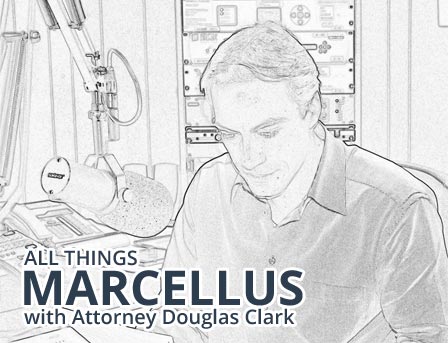Why Should I Need to Hire an Attorney with Experience in Negotiating Solar Lease Agreements and Solar Related Issues?
Quite simply,
- To maximize your compensation under your solar lease agreement
- To limit the company’s power and authority under the agreement and eliminate future surprises
- To protect yourself from potential future liability issues
- To guard against carefully crafted contract loopholes that benefit the solar company
- To ensure you are not jeopardizing your current mortgage or future financing opportunities
- To protect yourself against potential solar company bankruptcy
- To adequately ensure appropriate decommissioning of solar facilities
- To eliminate any possibility of future liability because of solar operations on your property
Solar lease agreements are very complex. Most solar agreements consist of dozens of pages and are in dissipated to last 30 to 50 years, or possibly longer. Effective negotiations will ensure that you were maximizing all financial opportunities, both today and into the future, while defending yourself against any potential bankruptcy, unwanted property development, unpleasant or even devastating future surprises, and eliminating any potential of future liability for the property owner. Also, an experienced solar lease negotiator will understand the leasing market in your area and will seek to create competition to maximize compensation at all stages of the solar lease agreement and make sure you are signing the best solar lease available for your property at the time. Many landowners have negotiated their own oil and gas lease and other contracts and feel they are equipped to negotiate a solar lease agreement. However, solar lease agreements are extremely complicated and involve extensive language relative to financing the solar project and involve the potential of company bankruptcy in the future. These agreements are very complicated and lengthy and are designed to benefit the solar company. Anyone considering a solar lease agreement should retain an attorney experience in solar lease negotiations so that they maximize their leasing opportunity and our are protected from liability and other potential pitfalls.
What is the difference between a solar lease agreement and an oil and gas lease?
Well, obviously one agreement is for the development of subsurface oil and gas while the solar lease is in agreement to allow solar energy development on the surface of your property. There are substantial differences between oil and gas leases in solar lease agreements. Oil and gas development involves drilling into deep subsurface shell formations and the unitization of properties for a shared development of gas or oil. A solar lease agreement will stand alone and your property will not be unitized with neighboring properties for development. The considerations involved in a solar lease are entirely different than an oil and gas lease given that gas leases pay royalties based upon the amount of gas extracted from the property. Solar leases pay yearly rentals based upon the number of acres included in the solar project. Solar lease agreements will involve potentially substantial surface development and will illuminate the use of substantial surface areas on the property. There or no royalties paid under solar lease agreements, so negotiation of the per acre price and escalation clause is which account for increase payments overtime to offset inflation are critical. Solar lease agreements are drafted with the anticipation that the solar company will be seeking financing for the potential solar project. The financing details and provisions within the solar lease agreement must be carefully reviewed and studied and amended to protect the landowner for against potential future financing issues.
The bottom line is that solar lease agreements are extremely complicated. Although a property owner may feel they have a solid grasp on the terms and provisions in oil and gas leases, solar lease agreements are vastly different and more complex. As solar development is in its infancy in Pennsylvania, this area is ripe for companies to take advantage of property owners without experience in solar energy development. Do not make the mistakes that property owners made in early oil and gas leasing, you should retain an attorney experienced in solar lease negotiations if you are presented with the leasing offer.
What kind of royalties can I reasonably expect a solar lease agreement?
None. Solar lease agreements do not pay royalties based upon the amount of solar energy produced from your property. That is why it is critical to understand the solar leasing market in your area and negotiate for the highest per acre annual compensation. It is also critical to negotiate to maximize a guaranteed minimum acreage requirement when entering it into a solar lease agreement. For example, the solar company may lease 100 acres of your land, but only use 20 acres for the solar development project. If the company were paying an annual per acre fee of $1000, the property owner would receive $20,000 per year in solar payments as the company only used 20 of the 100 acres available. However, if the landowner negotiated for a guaranteed minimum project area 50 acres, the landowner would receive $50,000 per year in solar payments, even though the company only used 20 acres of the 100 acre property. It is critical to negotiate the highest per acre compensation possible and a guaranteed minimum acreage for the project. It is also extremely important insert an escalator provision into the solar agreement that results in additional payments throughout the lifetime of the lease as these agreements may last for many decades. Property owners must evaluate solar agreements based upon current compensation levels and the potential for additional compensation in the future. Do not expect royalties based upon the amount of solar energy produced, you will not get them.
Can I still use the solar project area for farming or recreational activities?
Generally, no. The final designated solar project area will typically be off-limits to the property owner for agricultural or recreational activities. The solar project area may involve solar panels, electrical transportation facilities, substations, and other apartment facilities. The property owner can always attempt to negotiate to allow for certain agricultural or recreational activities, but generally such activities will be precluded in the area of the solar project. Of course, the property owner can seek to designate specific areas where in solar energy development is authorized well designating other areas where solar development is precluded. Remember, solar lease negotiations are complex and involve many different considerations, and property owners should not go through the leasing process without the assistance of a lawyer experienced in solar lease negotiations and who understands the regional Solar leasing market and knows how to eliminate loopholes and maximize the lease terms in your favor.
How long does a solar lease agreement last?
My best lawyer answer: “It depends.” There are many different stages or phases of a solar lease which typically include the following:
Remember, the solar company wants a lease that is most favorable to their development and provides them as many options and loopholes for time delays as possible. (Of course, they also want to pay you the smallest amount of money they can.). Solar lease agreements should be negotiated to reduce the development term, due diligence term, and construction term as much as possible. The operations term will make up the bulk of the agreement and made typically last for 20 to 40 years, with a company‘s option to extend the operation terms in the future. Negotiating option term length, and company options to extend the operation term is a critical part of every Solar Lease. Property owners must negotiate solar lease is to reduce company options and require the maximum available additional payments should the company exercise it’s option to extend its lease. Unlike gas leases, solar lease agreements will have a final end date, and The property owner must negotiate the solar lease agreement to maximize compensation throughout the life of the contract.
What if my property is in rolled in the clean and green or CREP Agricultural Programs?
Be extremely careful! Removal from the Clean and Green or CREP Programs can be devastating to the property owner. Solar companies will quickly tell you that they will pay any rollback taxes, fines, penalties, costs or other expenses related to the removal from clean and green or the CREP program. However, that is not enough!!! A solar project area may consist of 20 acres to several hundreds of acres. If the solar project area it’s 50 acres, and that area is removed from the clean and green tax benefit program, There will be substantial rollback taxes, fines, and penalties. But there is more! The 50 acres removed from clean and green will now be taxed at at least a fair market value tax rate and may be taxed as a commercial tax rate going forward. Even if the 50 acres is taxed at a fair market value rate, taxes on this portion of the property will increase substantially on a yearly basis. Yearly taxes on this 50 acre area may substantially diminish your compensation, or possibly even result in losses should this area be taxed at a commercial rate. Remember, if you were signing a solar lease agreement with compensation of $1000 per acre, and your taxes increase by $500 on an annual basis, your net result is a $500 per acre benefit under your solar lease. Property owners must negotiate and require the solar company to not only pay any rollback taxes, fines and penalties, but must require the solar company to pay all ANNUAL increases in taxes as a result of their operations. This is an absolutely critical part of any solar lease negotiation.




